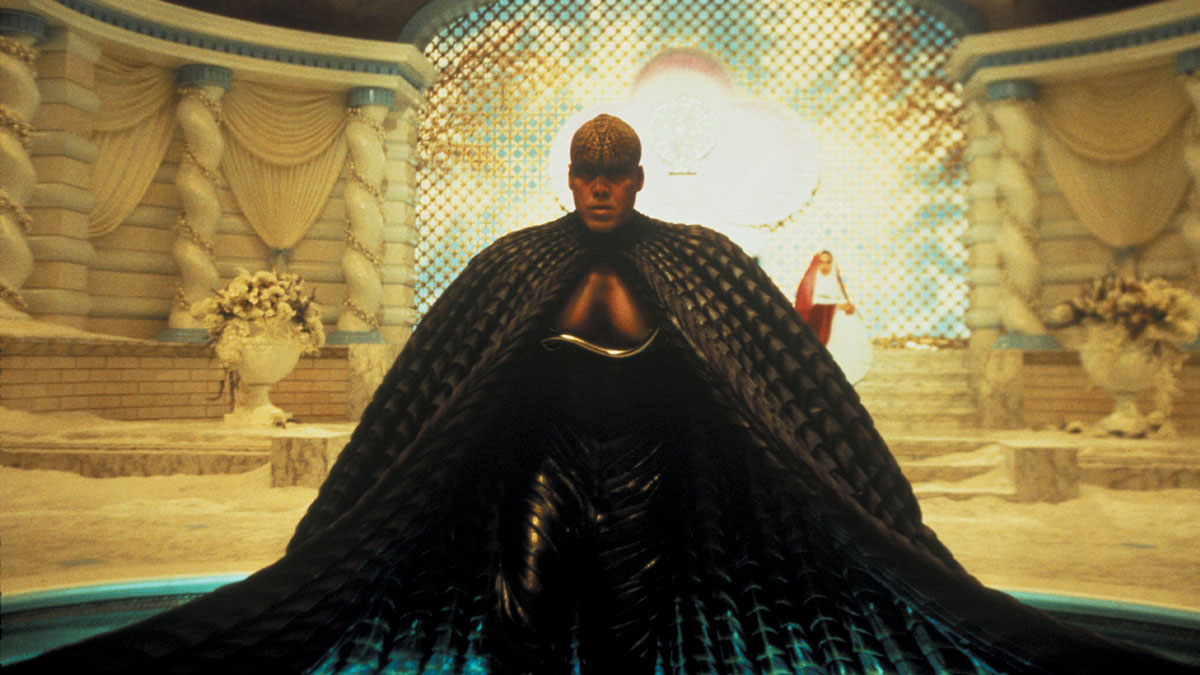
(c) Photofest / Getty Images
Is ``The Cell'' as beautiful as a sewing machine and a bat umbrella accidentally meeting on an autopsy table?
2020.12.01
Eiko Ishioka's work
Eiko Ishioka supported the work in ``The Cell'' by expressing quotations from various artworks and paintings in the form of costumes.
Ishioka served as the art director for Parco's advertisements from the 1970s to the 1980s, and it would be no exaggeration to say that he created the foundation for Japan's excellent advertising design today. After the mid-1980s, he moved to New York and began working on Broadway stage designs and costumes for Hollywood productions.
The film that made Ishioka famous was Francis Ford Coppola's `` Dracula'' (1992), a faithful adaptation of Bram Stoker's ``Dracula the Vampire.'' The costumes, which were boldly arranged while keeping an eye on the period setting, such as bright red armor reminiscent of pulsating muscle tissue and dresses with elegant Elizabethan collars, won the Academy Award for Best Costume Design.
"Dracula" preview
Ishioka and director Tarsem Singh first teamed up on ``The Cell,'' and have since worked on `` The Fall '' (2006), ` `Immortals' ' (11), and `` Snow White and the Mirror '' (2012). All of them continued to provide splendid costumes that were unique to Ishioka, and this honeymoon continued until Ishioka's death in 2012.
Tarsem's work after Ishioka's death, `` Selfless/Awakened Memories '' (2015), shows the importance of Ishioka's presence in the fact that he abandoned his previous fantasy style.

